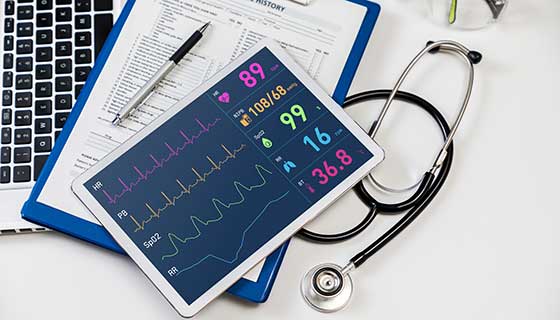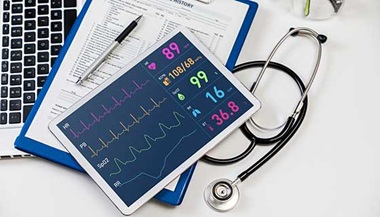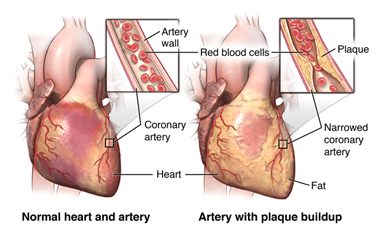Heart Attacks Striking Younger Women
Reviewed By:
Younger women are having more heart attacks, says a recent study. Researchers were surprised to find that while the heart attack rate has decreased among older adults, it's risen among those ages 35-54, especially women. The Atherosclerosis Risk in Communities study reviewed more than 28,000 hospitalizations for heart attacks in four cities.
"This observational study found a trend in young women," says Virginia Colliver, M.D., cardiologist with Johns Hopkins Community Physicians-Heart Care in Bethesda, Maryland. "But the research doesn't provide insight into why the uptick in heart attacks is happening to younger people. I suspect it has to do with more people having risk factors for heart disease at an earlier age."
Heart Attack Risk Factors for Women
There are several factors that increase your chance of developing heart disease. Almost 50% of all Americans have at least one of three major risk factors for the condition:
- High blood pressure: Women can develop high blood pressure as a side effect of birth control pills or during pregnancy. All women over 65 are more likely than men are to have high blood pressure.
- High cholesterol: Estrogen seems to protect women against unhealthy levels of cholesterol. But after menopause, estrogen levels drop and high cholesterol becomes more likely.
- Smoking: Although men are slightly more likely to smoke, the gap in cigarette usage between genders is smaller than ever and women are less likely to be able to quit successfully.
Additional risk factors include:
- Diabetes
- Obesity
- Family history of heart disease
- Age (risk increases as you get older)
- Unhealthy diet
- Physical inactivity
- Excessive alcohol use
Do hormones affect your risk of a heart attack?
Many women use prescription hormone drugs for birth control or for reducing symptoms of menopause (called hormone replacement therapy). Could these drugs jeopardize your heart health?
"Birth control pills can increase your risk of having a blood clot, either in the heart or in the legs, and they can also raise your blood pressure. So, if you have a history of high blood pressure or clotting problems, other types of contraception might be a better fit for you," says Colliver. "But for most young women, it's safe to take birth control medication."
Colliver notes that women over the age of 50 are at an increased risk for heart disease and should completely avoid estrogen and progesterone drugs, if possible. "If your overall risk of heart attack is extremely low and you desperately need relief from hot flashes and other postmenopausal symptoms, then hormone replacement therapy may be fine for you," says Colliver. "But after the age of 65, we really try to avoid using them at all because they do increase the risk of heart disease and potentially breast cancer."
Heart Attack Symptoms in Women
Although many people think heart attacks happen mostly to men, heart disease is the leading cause of death for both men and women. So it's just as important for women of every age to recognize heart attack signs and seek immediate medical attention.
For the vast majority of people — men and women — chest pain or discomfort is the primary symptom of a heart attack. However, women are more likely than men are to have less recognizable heart attack symptoms, such as:
- Pain or discomfort in different parts of the upper body (back, neck, jaw, arms or stomach)
- Shortness of breath
- Lightheadedness
- Cold sweats
- Fatigue
- Nausea and vomiting
What You Can Do Now to Prevent an Early Heart Attack
Although some risk factors are beyond your control, there are many things you can do to protect your heart health. It's estimated that 80% of heart disease, including heart attacks and strokes, can be prevented through lifestyle changes, such as:
- Maintaining a healthy weight: Being overweight or obese increases your heart disease risk. Get tips on how to watch your weight.
- Eating a heart-healthy diet: Avoid processed foods and excess sugar. Eat a diet rich in whole, nutritious foods (a good example is the Mediterranean diet).
- Exercising regularly: A consistent workout routine can boost your heart health. Aim for at least 150 minutes per week. Learn the kinds of exercise that can boost heart health.
- Reducing alcohol: Women should limit alcohol consumption to no more than one drink a day. Find out if drinking (especially red wine) is good or bad for you.
- Moving more: In addition to exercise, it's good to move throughout the day. Avoid long periods of sitting. Learn how a sedentary lifestyle affects heart health.
- Managing stress: There's increasing evidence that indicates you shouldn't underestimate stress and its impact on heart health. Learn 5 tips for women to stay heart healthy and combat stress.
- Getting an annual exam: Heart disease can be difficult to predict, especially if you don't have symptoms. Getting an annual checkup is the best way to stay on top of risk factors and get help for conditions related to heart disease, such as diabetes and high blood pressure.
The bottom line: It's never too early to adopt heart-healthy behaviors. Learn five quick steps you can take today to protect your heart health.
Sign Up for Our Free Newsletter

One of the best things you can do to protect and improve your health is to stay informed. Your Health is a FREE e-newsletter that serves as your smart, simple connection to the world-class expertise of Johns Hopkins.







